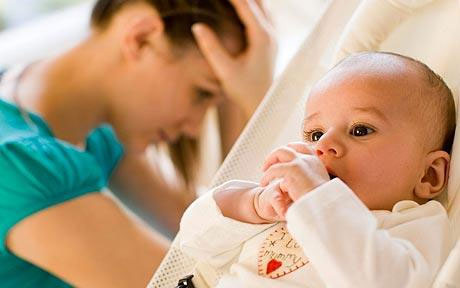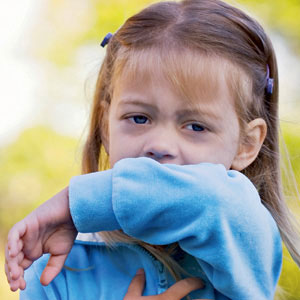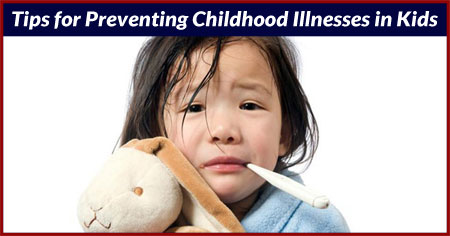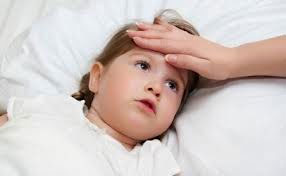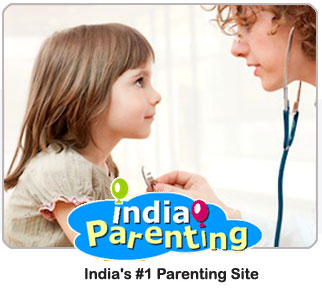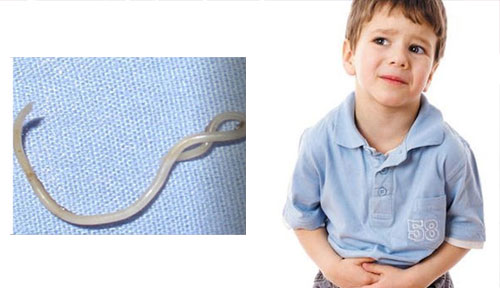 Pinworm infections in children can be kept at bay if right precautions are taken. Read on to learn more about the common causes and symptoms of pinworm infection in children and some preventive measures.
Pinworm infections in children can be kept at bay if right precautions are taken. Read on to learn more about the common causes and symptoms of pinworm infection in children and some preventive measures.A pinworm is a common intestinal parasite in primates, especially humans. A pinworm infestation in the human intestine causes enterobiasis, commonly called a Pinworm Infection. Such an infection is most common in children aged 5-10, or people who frequently come into close contact with children of that age group. Because a pinworm infection spreads very easily and rapidly, people who are in regular contact with an infected person are themselves susceptible to infection.
Medication provides an effective treatment, albeit leaving the person vulnerable to reinfection later. Pinworm infection generally does not cause severe health complications, although rare cases of urinary tract infections or weight loss due to loss of nutrients have been documented.
How does one get infected?
Pinworm infections are highly contagious. One can become infected by unintentionally inhaling or ingesting pinworm eggs deposited on any object by an infected person. These eggs then hatch and mature in the intestine, finally exiting the body through the anus where the females lay eggs that cause irritation. Pinworm eggs can survive up to two weeks on contaminated surfaces such as cloth, toilet seats, toys or other household objects, from where members of the household could get infected.
What are the symptoms of a pinworm infection?
There are cases where the infected person does not experience any symptoms. However, the general indications of a possible pinworm
infection are irritation and itching in the anal area, or the presence of a rash around the anus. In case of children, the worms and eggs are sometimes visible in the anus either at night or early in the morning.
Pinworms can also be detected by their presence in stool.
How is pinworm infection treated?
Pinworm infections can generally be treated effectively by oral medication. Medication is usually prescribed to everyone in close proximity to the patient, owing to how easily pinworm infection can spread.
Symptoms of the infection are expected to disappear one week into treatment. However, your doctor may prescribe a further dosage so as to ensure any eggs that might have hatched since the last dose are also done away with effectively. In addition to the oral medication, a cream or ointment could be prescribed to soothe the anal irritation and itching.
How can you prevent a pinworm infection?
In addition to keeping the house well-lit during the day (pinworm eggs are sensitive to sunlight), maintaining a sense of hygiene in daily life goes a long way in reducing the possibility of infection. Simple practices like thoroughly washing hands before a meal, clipping the fingernails regularly, changing clothes and underwear every day, vacuuming all carpeted areas methodically or ensuring that children do not bathe together, are elements of a regimen that
prevents pinworm infection or reinfection.
Can complications arise from an infection?
Cases of serious complications arising as a result of pinworm infection are very rare. If left untreated, the pinworms can travel from the anus to the vagina in women, causing vaginitis, endometritis or urinary tract infections. Other complications could be abdominal pain due to the presence of substantial number of pinworms in the system, or weight loss because the pinworms can exhaust essential nutrients. However, the relative number of such incidents where the infection develops into something severe are minute and there are great chances that full recovery will be achieved by the usage of oral medication.
Pinworm infection is fairly common among Indian children, although it does not usually develop into further complications and can be treated with straightforward dosage. As a parent, ensuring the maintenance of hygienic practices in your household is the safest bet against this infection for your children. Follow a routine of washing hands with a disinfectant, showering daily, changing underwear daily, refraining from nail-biting and scratching, etc. to stay away from pinworm infection. If any of the symptoms occur, consult a medical practitioner to get best advice on how to go about proceedings.
What causes pinworm infection in children? How to treat pinworm infection in children with home remedies? What are ways to prevent pinworm infection? Discuss here.











 Pinworm infections in children can be kept at bay if right precautions are taken. Read on to learn more about the common causes and symptoms of pinworm infection in children and some preventive measures.A pinworm is a common intestinal parasite in primates, especially humans. A pinworm infestation in the human intestine causes enterobiasis, commonly called a Pinworm Infection. Such an infection is most common in children aged 5-10, or people who frequently come into close contact with children of that age group. Because a pinworm infection spreads very easily and rapidly, people who are in regular contact with an infected person are themselves susceptible to infection.Medication provides an effective treatment, albeit leaving the person vulnerable to reinfection later. Pinworm infection generally does not cause severe health complications, although rare cases of urinary tract infections or weight loss due to loss of nutrients have been documented.
Pinworm infections in children can be kept at bay if right precautions are taken. Read on to learn more about the common causes and symptoms of pinworm infection in children and some preventive measures.A pinworm is a common intestinal parasite in primates, especially humans. A pinworm infestation in the human intestine causes enterobiasis, commonly called a Pinworm Infection. Such an infection is most common in children aged 5-10, or people who frequently come into close contact with children of that age group. Because a pinworm infection spreads very easily and rapidly, people who are in regular contact with an infected person are themselves susceptible to infection.Medication provides an effective treatment, albeit leaving the person vulnerable to reinfection later. Pinworm infection generally does not cause severe health complications, although rare cases of urinary tract infections or weight loss due to loss of nutrients have been documented.




